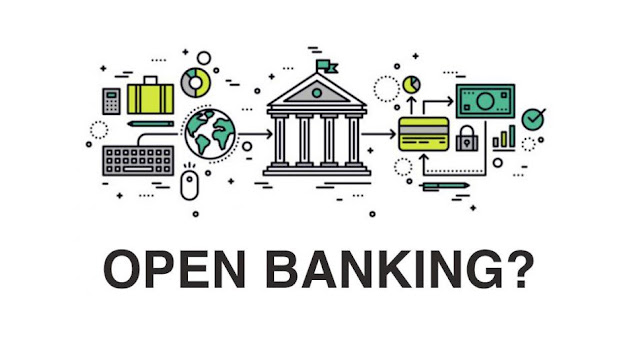- Get link
- X
- Other Apps
- Get link
- X
- Other Apps
Introduction:
Financial inclusion, the access and usage of financial services by individuals and businesses, is crucial for economic development and social progress. However, traditional banking systems have often excluded certain segments of the population due to various barriers.
Open banking has emerged as a transformative solution, offering the potential to enhance financial inclusion and empower individuals to take control of their financial lives.This article delves into the concept of open banking and its impact on fostering financial inclusion.
1. Understanding Open Banking:
Open banking is a system that allows customers to grant third-party financial service providers access to their financial data, securely and with their consent.
It is facilitated through the use of Application Programming Interfaces (APIs), which enable data sharing and integration between different financial institutions and service providers. By opening up access to customer data, open banking fosters competition, innovation, and collaboration within the financial industry.
2. Enabling Financial Inclusion:
Open banking has the potential to significantly enhance financial inclusion by addressing the barriers that previously hindered access to financial services.
For individuals without a traditional banking relationship, open banking allows them to leverage alternative financial services and products tailored to their needs.
It also enables easier and more efficient account opening procedures, reducing the paperwork and requirements typically associated with traditional banks.
Also read:
What is Business account in Banking
3. Empowering Individuals:
3. Empowering Individuals:
Open banking empowers individuals by giving them greater control over their financial data and decision-making.
Through the use of open banking-enabled applications, individuals can have a holistic view of their financial information from multiple accounts and institutions in a single interface.
This enables them to make informed financial decisions, manage their budgets more effectively, and access personalized financial advice and recommendations.
4. Fostering Innovation and Collaboration:
Open banking stimulates innovation and collaboration within the financial industry. It encourages financial institutions to develop new and improved products and services that cater to the needs of underserved populations.
By partnering with fintech startups and other third-party providers, traditional banks can expand their service offerings and reach a broader customer base.
This collaborative approach promotes healthy competition and drives the development of customer-centric financial solutions.
5. Addressing Concerns and Ensuring Security:
As with any technological advancement, open banking raises concerns about data privacy and security.
However, regulatory frameworks, such as the General Data Protection Regulation (GDPR) in the European Union, are in place to safeguard customer data and ensure compliance.
Robust security measures, such as encryption and authentication protocols, are implemented to protect sensitive information and prevent unauthorized access.
Conclusion:
Open banking has the potential to transform the financial landscape by enhancing financial inclusion and empowering individuals to make more informed decisions about their finances.
By opening up access to financial data and promoting collaboration and innovation, open banking can bridge the gap between traditional banking services and the underserved population.
With appropriate regulatory frameworks and security measures in place, open banking has the capacity to create a more inclusive and accessible financial ecosystem.

Comments
Post a Comment